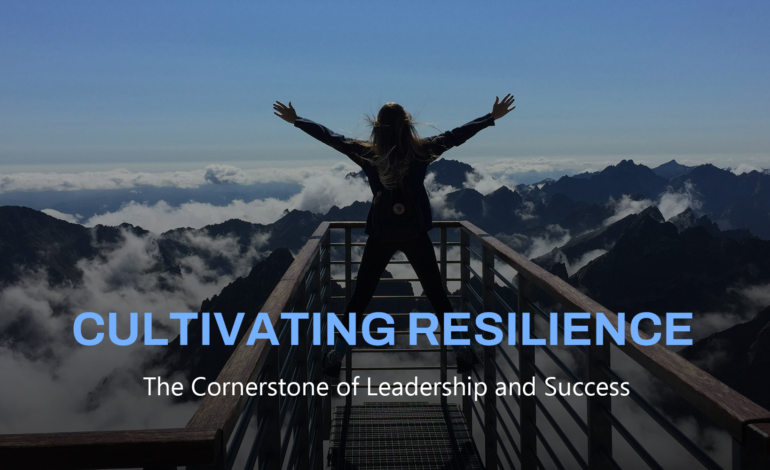
In a world characterized by rapid technological advancements, the landscape of work is undergoing a profound transformation. From automation and artificial intelligence to remote work and the gig economy, these shifts are reshaping how we approach our careers. Adapting to these changes is not just a matter of survival; it’s an opportunity for growth and innovation. In this article, we’ll explore key trends in the future of work and how individuals and organizations can thrive in this evolving landscape.
Embracing Automation and AI
One of the most significant shifts in the future of work is the increasing role of automation and artificial intelligence. While this may raise concerns about job displacement, it also presents an opportunity for us to redefine our roles. Rather than fearing automation, we can embrace it as a tool to enhance productivity and creativity.

Automation is already widespread in many industries, from manufacturing (robots) to transportation (self-driving vehicles), but its use is growing rapidly in knowledge work as well. In fact, McKinsey predicts that about half of all tasks that knowledge workers do today could be automated by 2025—and this will likely lead to large-scale job losses.
However, automation can also help eliminate mundane tasks so that we can focus on more meaningful work and spend more time solving complex problems with our colleagues. This shift will require us to rethink our roles and responsibilities, but it has the potential to bring us closer together as teams—and allow us to deliver better outcomes for our organizations.
The Rise of Remote Work and Digital Nomadism
The COVID-19 pandemic catapulted remote work into the spotlight. It’s here to stay. This shift offers unprecedented flexibility, allowing individuals to choose where they work from. Embracing remote work not only expands talent pools but also promotes work-life balance and well-being.
Remote work has been on the rise over the past 10 years, and it’s expected to continue growing as more companies embrace this practice. According to a recent study by The Conference Board, more than half (56%) of businesses plan to increase their telecommuting capabilities in the next three years, while only 11% expect to decrease their ability to work remotely.
The benefits of remote work are clear: it lets employees avoid spending time commuting; reduces stress by reducing time spent away from home; allows employees to maintain more flexible schedules; and gives employers access to a larger pool of candidates who can’t relocate due to family obligations or other reasons.
Thriving in the Gig Economy
The gig economy has grown rapidly in recent years, with more than 4 million Americans working as freelancers in 2017. While some people are forced into the gig economy by circumstance, others choose to embrace it. In fact, a 2017 survey found that 44% of freelancers say they’re happier working independently than they were as full-time employees.
Gig work offers an alternative way to approach our careers: You can choose projects you’re passionate about. If you’d rather work on a specific project (or several) for a set period of time and then move onto something new, the gig economy allows you to do just that. It gives you control over your professional path and lets you pursue work that aligns with your interests and goals.
You can build skills. Working as a freelancer can be an effective way to develop new skills or gain experience in a particular industry or subject area. By taking on gig work on nights and weekends while also continuing your full-time job, you can gain valuable expertise while also earning money to pay the bills.
The Power of Soft Skills
The workplace is changing. As technology automates more and more tasks, it frees up time and space for humans to do what they do best: think creatively and collaborate with each other. That’s where soft skills come in. While technical skills are important, soft skills are becoming the linchpin of success in the future of work. Effective communication, adaptability, emotional intelligence, and problem-solving are skills that set us apart in an automated world. They’re the foundation of strong human-machine collaboration.
Soft skills are also essential for navigating today’s rapidly changing business landscape. When a new technology or approach comes along that could disrupt your industry or job role, you’ll need to be flexible enough to adapt and keep up with change as it happens.
Fostering Ethical Practices and Social Impact
As technology becomes more integrated into the workplace, ethical considerations are at the forefront. Organizations must prioritize privacy, data security, and inclusivity. By embracing ethical practices, we not only protect our employees but also contribute to a more equitable and just society.
In the past few years, there has been an increasing focus on how technology can be used to promote social impact and equality. It’s not just about making money — it’s about creating a better world for everyone.
Prioritizing Health and Well-being

Employees today are more stressed, exhausted and depressed than ever before. In fact, in a recent Gallup poll, 45% of U.S. workers said they had an “unhealthy” amount of stress in their lives, while only 19% felt they had “very good” mental health. The events of the past few years have underscored the importance of employee well-being. Organizations are increasingly investing in mental and physical health resources, recognizing that a healthy workforce is a more productive and engaged one.
But it’s not enough to simply offer these resources; employees need to feel empowered to take advantage of them. In fact, research shows that one of the most effective ways to promote employee wellness is by making it something employees want to do for themselves — rather than feeling like something employers want them to do as part of their job description or performance review process.
The future of work is a landscape of opportunity for those who are willing to adapt and innovate. By embracing technological change, prioritizing continuous learning, and fostering a culture of inclusivity, we can not only thrive in this new era but also lead the way towards a more equitable and prosperous future of work. The journey starts now, and the possibilities are boundless.
RUCHI RATHOR Founder & CEO
Payomatix Technologies Pvt. Ltd.
FOUNDER AND INVESTOR | PAYMENTS PROCESSING EXPERT | MERCHANT ACCOUNT SOLUTIONS | WHITE LABELLED PAYMENT GATEWAY | Dreamer, Creator, Achiever, Constantly Evolving
Website Ruchi Rathor: https://ruchirathor.com
Website Healing Heart https://thehealingheart.me/
Instagram https://www.instagram.com/_ruchirathor_/
LinkedIn https://www.linkedin.com/in/ruchirathor12/
Facebook https://www.facebook.com/ruchi.rathor.magnificient
Tumblr https://www.tumblr.com/blog/ruchirathor-thehealingheart
Medium https://medium.com/@ruchirathor_23436









